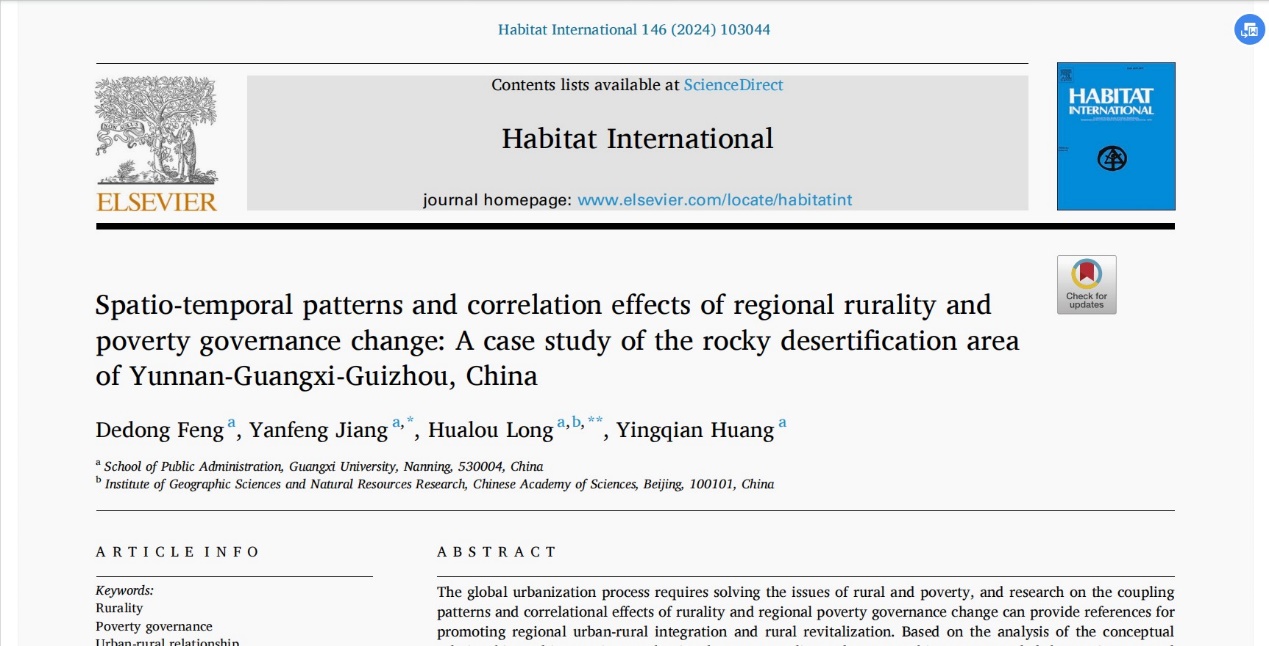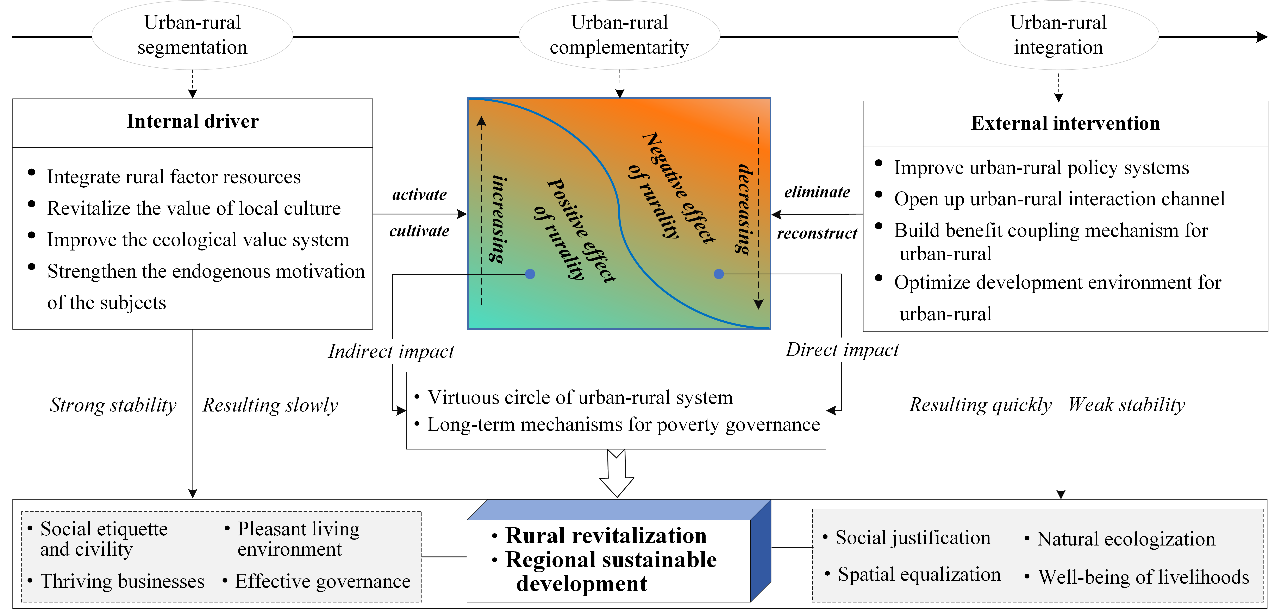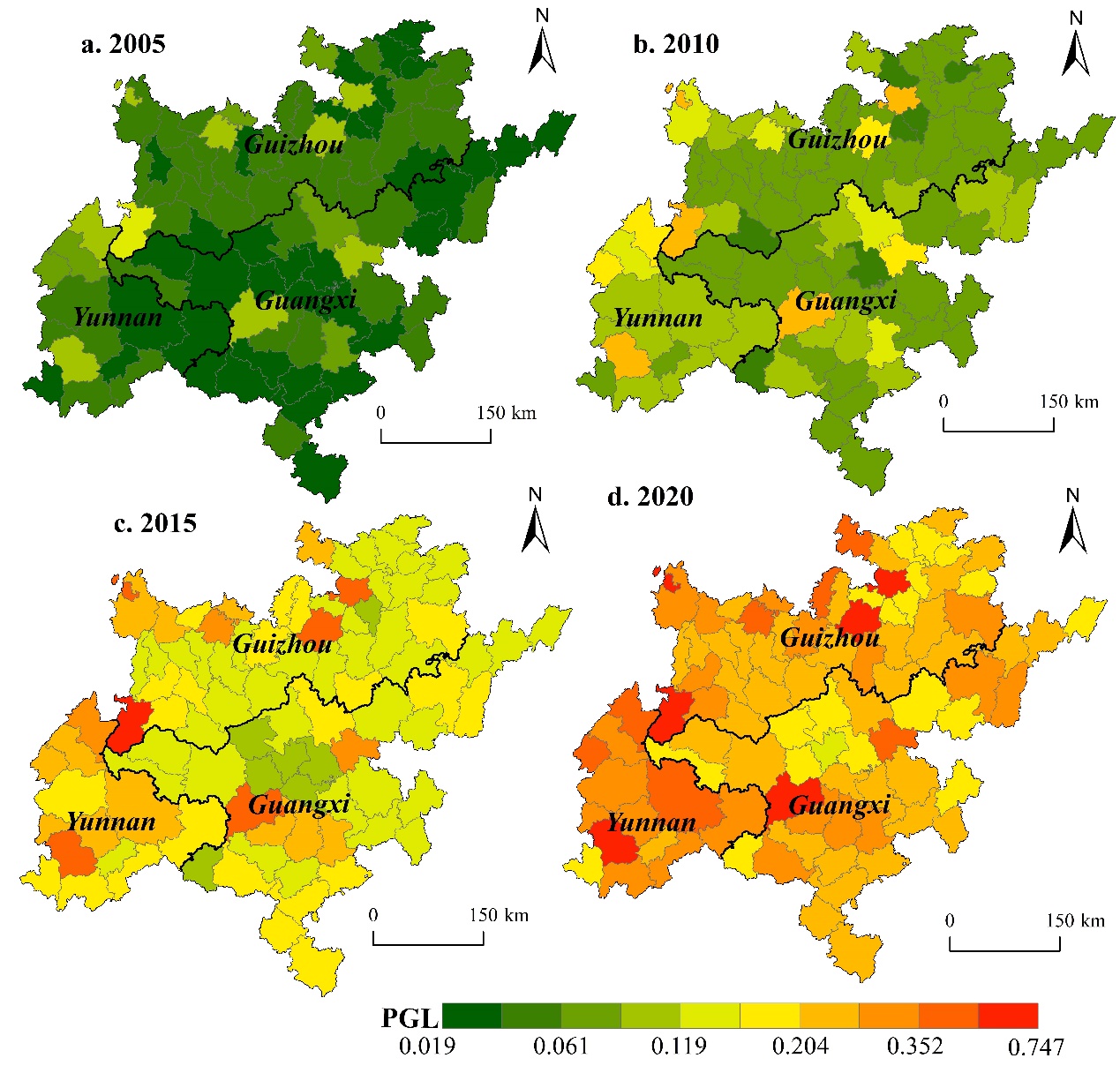Profiles of the Authors
Feng Dedong - Doctoral Student, School of Public Policy and Management, Guangxi University
Jiang Yanfeng - Assistant Professor, School of Public Policy and Management, Guangxi University
Long Hualou - Distinguished Changjiang Scholar and Doctoral Supervisor, School of Public Policy and Management, Guangxi University
Huang Yingqian - Doctoral Student, School of Public Policy and Management, Guangxi University
Published in
Habitat International
Citation
Feng, D., Jiang, Y., Long, H., Huang, Y., 2024. Spatio-temporal patterns and correlation effects of regional rurality and poverty governance change: A case study of the rocky desertification area of Yunnan-Guangxi-Guizhou, China.Habitat International, 146, 103044.
Original Article Link
https://doi.org/10.1016/j.habitatint.2024.103044
Rural revitalization and poverty governance practices play a pivotal role in shaping the evolving global urban-rural development landscape. The widespread impact of urbanization has led to the marginalization and decline of rural areas, contributing to global challenges such as rural poverty, depopulation, and widening urban-rural disparities. In the current era, the question of how changes in rural areas influence regional poverty governance, and the relationship between these dynamics, has become a focal point of global concern and discussion.

This paper explores the conceptual relationship and mechanisms through which rurality impacts poverty governance (Figure 1), with an empirical study conducted in 91 counties across the rocky desertification regions of Yunnan, Guangxi, and Guizhou in China. The theoretical analysis suggests that poverty can, to some extent, be seen as a negative outcome arising from an imbalance between the positive and negative effects of rurality within a regional urban-rural system. Effective poverty governance, therefore, involves balancing these effects. The influence of rurality on poverty governance operates through dynamically adjusting the balance between positive and negative rurality effects at different stages, with the ideal outcome being a reduction in negative effects and an enhancement of positive effects.

Figure 1: Mechanism of rurality's influence on poverty governance
The empirical findings demonstrate that between 2005 and 2020, changes in rurality were closely linked to the level of poverty governance at the county level in the rocky desertification regions of Yunnan, Guangxi, and Guizhou, with the two showing an overall inverse dynamic trend (Figure 2). This study further recommends incorporating the concept of rurality into the formulation of regional poverty alleviation policies, providing a new analytical perspective and theoretical framework for understanding regional poverty governance.


Figure 2: Spatiotemporal patterns of the rurality index and poverty governance levels in county areas of the rocky desertification regions of Yunnan, Guangxi, and Guizhou during 2005-2020
Journal Overview
Habitat International was established in 1976 in Vancouver by the United Nations Human Settlements Programme. It is a leading international academic journal in the fields of urban studies and urban-rural development, focusing on the planning, design, production, and management of human settlements in both urban and rural contexts. The journal is classified as a Q1 SSCI journal (JCR division) and is also recognized as a TOP Q1 journal by the Chinese Academy of Sciences. In 2023, it has an impact factor of 6.8.
Text and images by | Jiang Yanfeng
Reviewed by | Zeng Fanjun

